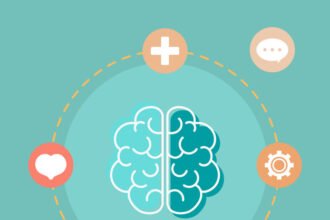Watching your child suffer from anxiety can be stressful as a parent or guardian. It is often hard to parents to determine when to seek treatment for an adolescent with anxiety. In some cases, feelings of anxiety go away as they go through crucial developmental phases of their youth. But, other times the anxiety progresses, even getting worse over time.
Anxiety disorders are among the most common mental health issues that adolescents face. One in eight children between 13 and 18 suffer from anxiety. That figure is even higher with adults, as 48% of millennials suffer from anxiety. It can have a significant impact on their daily lives, from academic performance to overall well-being.
When anxiety becomes overwhelming, sending your adolescent to an outpatient treatment center can be a major step in helping them manage their mental health and regain control over their life. Through an outpatient treatment center, adolescents are still able to attend school and other activities in their daily lives while privately seeking treatment.
Understanding Adolescent Anxiety
Adolescence is a time of significant change, both physically and emotionally, and it is not uncommon for teenagers to experience anxiety. In Massachusetts, the anxiety rates in children are increasing. When anxiety becomes persistent, intense, and interferes with daily functioning, it may be a sign of an anxiety disorder that requires therapeutic treatment. Common anxiety disorders in adolescents include generalized anxiety disorder, social anxiety disorder, panic disorder, and specific phobias.
Signs that your adolescent may be struggling with anxiety include excessive worry, avoidance of certain situations, physical symptoms like headaches and stomachaches, irritability, and changes in sleep patterns.
What Is Outpatient Treatment?
Outpatient treatment centers specialize in providing mental health services to individuals who do not require round-the-clock care. For adolescents with anxiety disorders, an outpatient anxiety treatment center can be an effective way to address their condition.
The first step in the process is a comprehensive assessment by mental health professionals. This helps in diagnosing the specific anxiety disorder and understanding its severity. Treatment plans are then tailored to meet the unique needs of your adolescent. These plans may include therapy, medication management, or a combination of both.
Cognitive-behavioral therapy (CBT) is one common and effective therapeutic approach for treating adolescent anxiety. It helps them identify and manage anxious thoughts and behaviors. Through outpatient treatment, your child is then able to use this therapeutic approach throughout daily life.
Benefits of Outpatient Treatment for Adolescents
Outpatient centers provide education not only to the adolescents but also to the family, helping everyone understand the nature of anxiety and how to support recovery. Outpatient programs often involve family members in therapy and support, enhancing the effectiveness of treatment and providing a support system at home.
Outpatient treatment also allows your adolescent to continue with their daily routines, such as attending school and participating in extracurricular activities. This can contribute to a sense of normalcy and stability during a challenging time. Adolescents learn valuable coping skills to manage their anxiety, which can be applied in various situations, both during treatment and after.
By addressing anxiety in adolescence, you are equipping your child with the tools needed to manage their condition as they transition into adulthood. Seeking outpatient treatment for anxiety demonstrates that mental health care is a normal and essential part of life. It reduces the stigma associated with mental health issues, allowing them to feel confident seeking a happier and healthier life.










